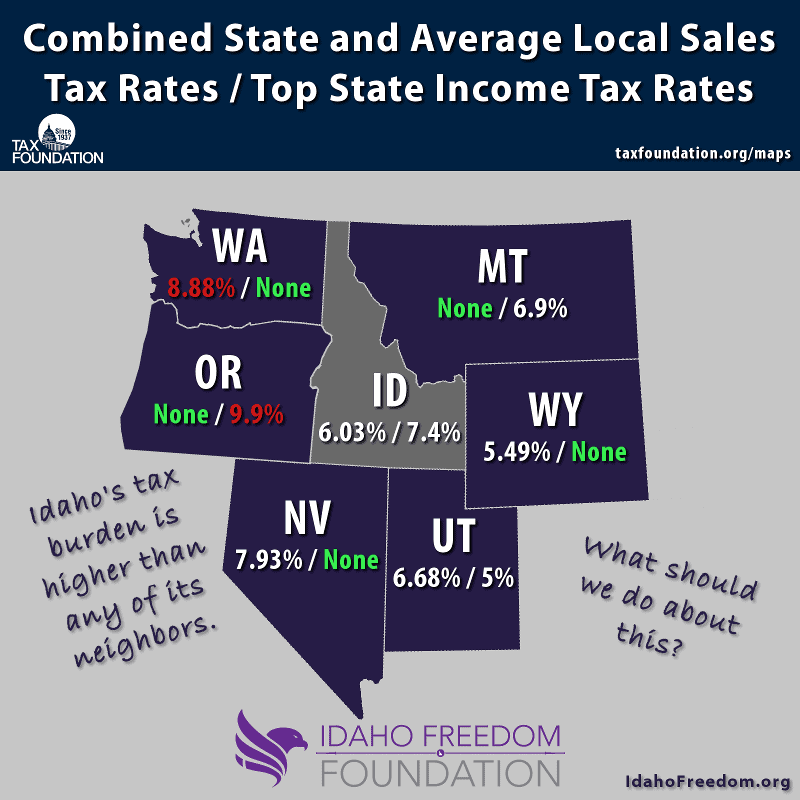


Cronyism (special handouts for favored businesses) is rampant in Idaho, but its defenders swear that without these practices we wouldn't be the chosen destination for any new businesses. Why is that? Maybe it's true and maybe it's not, but if those trying to lure new businesses here believe that bribes are the only attraction, perhaps there are bigger issues to consider.
Consider this little factoid. According to the Tax Foundation's latest ranking, Idaho's business tax climate ranks worse than every state with which we share a border. It's not a small variation, either. Idaho is No. 19 nationally, and our neighbors come in at Nos. 1, 3, 6, 9, 11 and 12, Those rankings are for Wyoming, Nevada, Montana, Utah, Washington and Oregon respectively.
These rankings might strike some as odd, but consider some of the primary sources of state revenue—sales and income taxes. Five of the six states that border Idaho go entirely without one of these tax categories. Only Utah has both, and its flat 5 percent income tax significantly undercuts Idaho's top rate of 7.4 percent, which kicks in at a very low threshold of $10,718 annually.
One more fun fact; Idaho had no sales tax before 1965 and no income tax before 1931, yet somehow people and businesses still managed to survive. The idea that governments have to maintain massive influxes of revenue in order to sustain bloated welfare programs and an administrator-heavy education system is not borne out by history.
Instead of using tax revenue to bribe new companies to take up residence in the Gem State, Idaho needs to actually compete head to head with its neighbors and bring its tax rates down to a reasonable level—or perhaps eliminate one of its taxes altogether.



